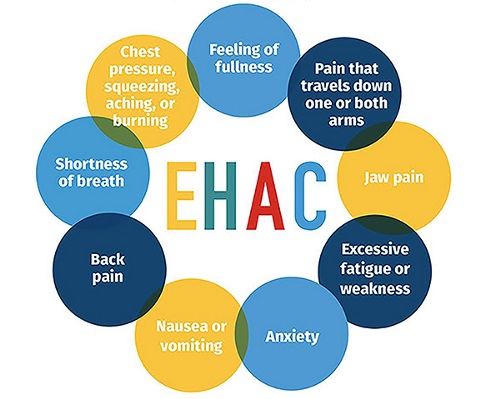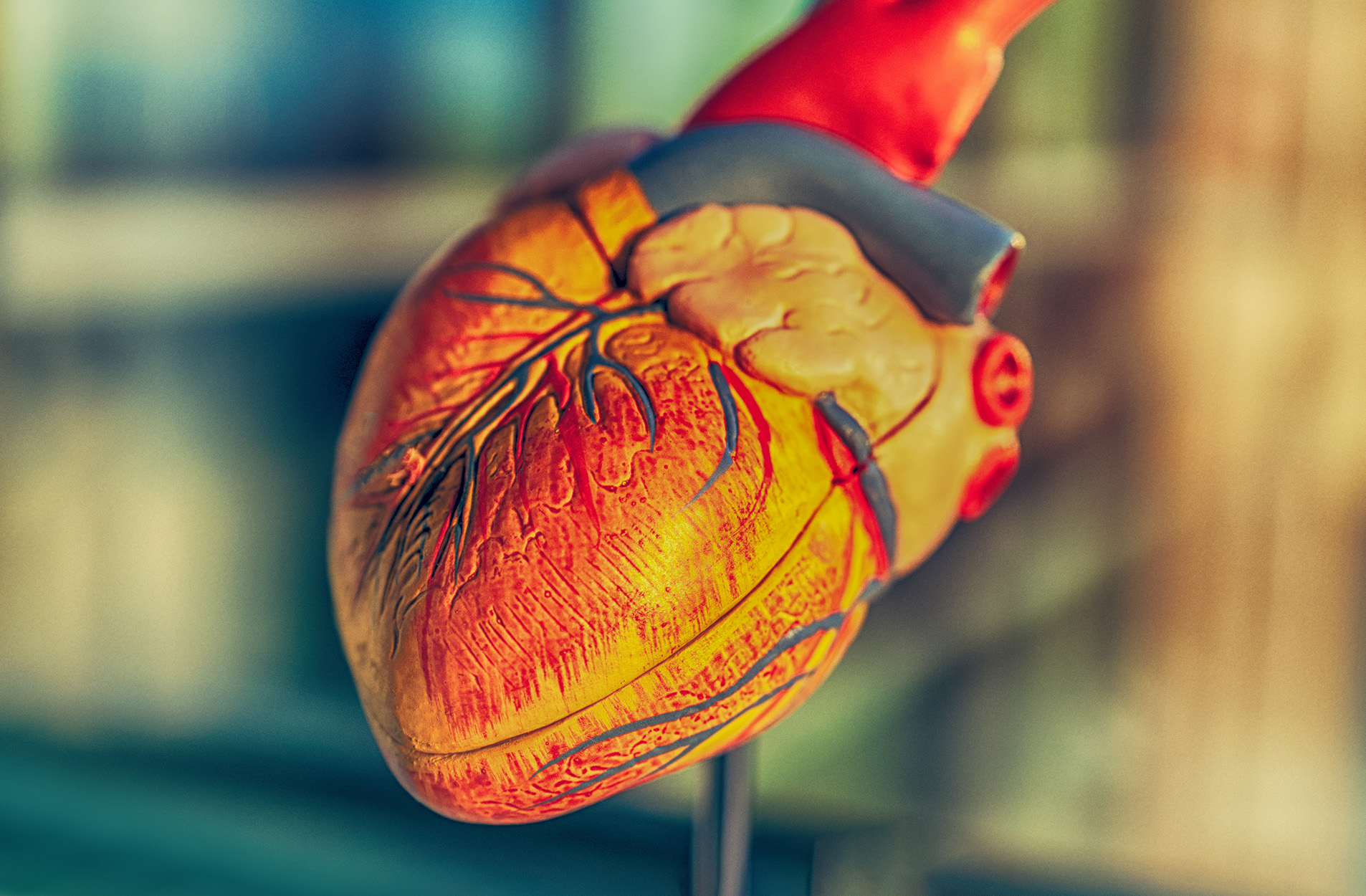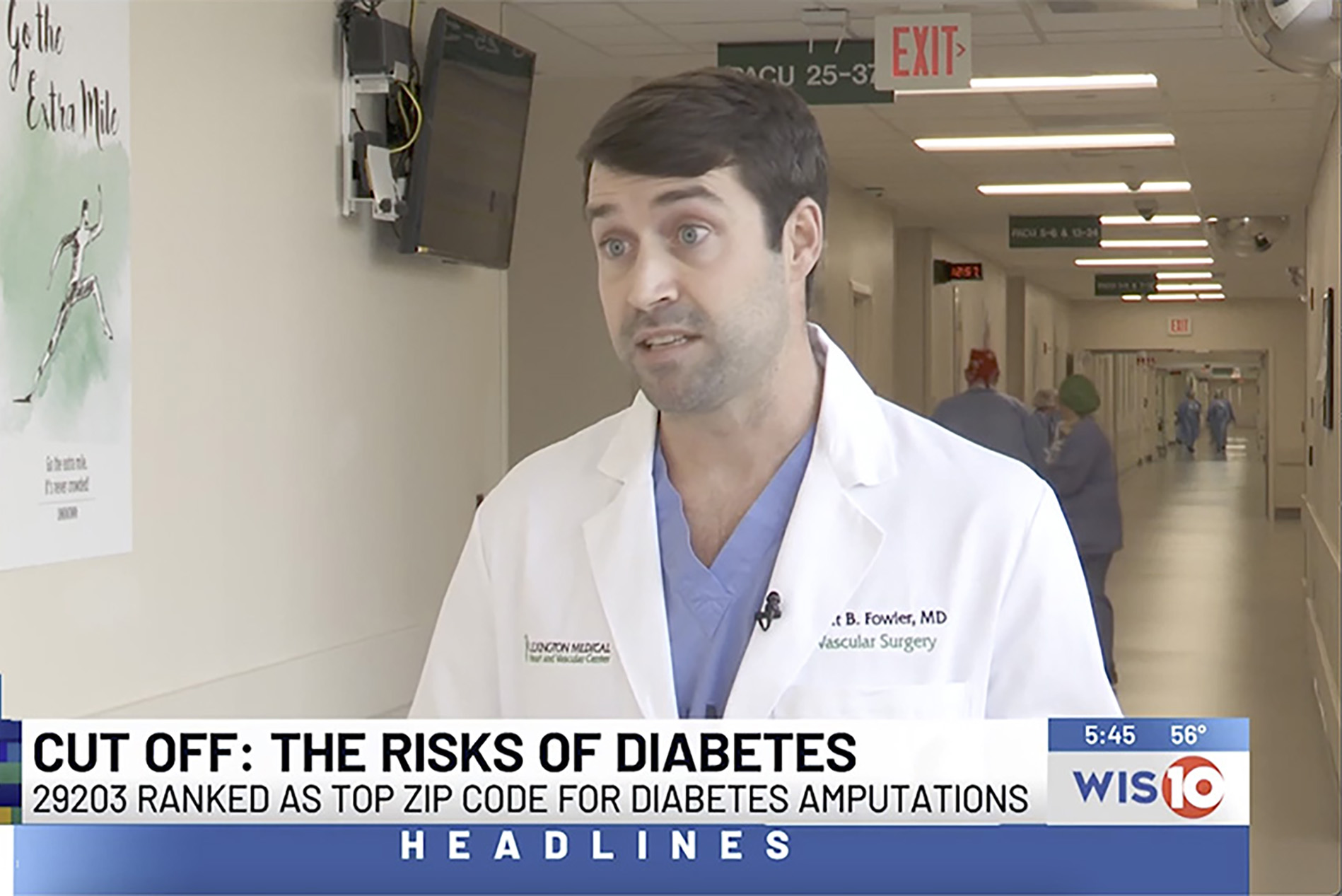Early Signs and Symptoms
Someone might have one or more of these common symptoms. When they start, they can be mild or come and go. Over time, the symptoms and pain become more intense. Stay alert and always pay attention to chest pressure.
What are the Risk Factors?
These are the general risk factors. Discuss your risk with your doctor.
- Chest pain, pressure, burning, aching or tightness - it may come and go
- A family history of cardiovascular disease
- High blood pressure
- Overweight or obese
- Sedentary lifestyle
- Using tobacco prodcuts
- Metabolic disease, diabetes or other illnesses
- For women, it can also include birth control pills, a history of pre-eclampsia, gestational diabetes or having a low birth weight baby
What are the Differences for Men vs. Women?
Some heart attack symptoms can be different between men and women. Why does it matter? Women may be less likely to seek immediate medical care, which can cause more damage to the heart.
- Men normally feel pain and numbness in the left arm or side of chest, but in women these symptoms may appear on the right side.
- Women may feel completely exhausted, drained, dizzy or nauseous.
- Women may feel upper back pain that travels up into their jaw.
- Women may thing their stomach pain is the flu, heartburn or an ulcer.
What are Atypical Presentations?
In an atypical presentation, the signs and symptoms are different. How? The patient may not complain about pain or pressure in the chest. Be alert for the following:
- A sharp or "knife-like" pain that occurs with coughing or breathing
- Pain that spreads above the jawbone or into the lower body
- Difficult or labored breathing
If you would like more information about EHAC resources for a community group, contact Dawn Crumpton, Lexington Medical Center Outcomes Coordinator at (803) 936-7756 by dxcrumpton@lexhealth.org.






Leave a comment